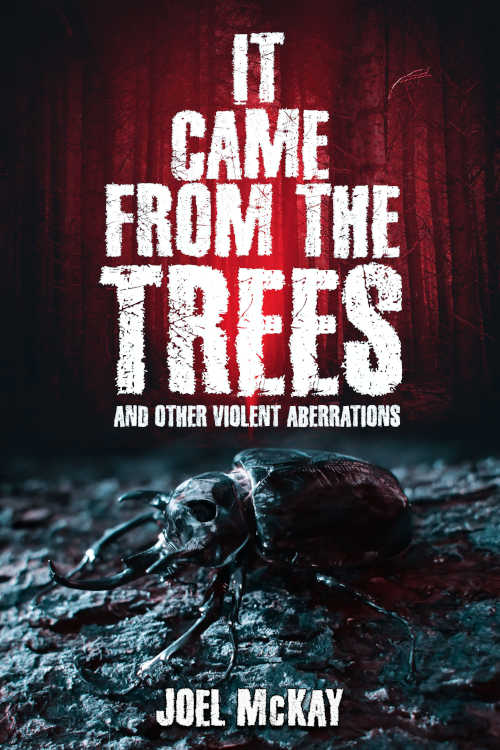To make money in self-publishing, conjure the entrepreneur, not the artist
 Being a self-published author means working two sides of the same coin: art and business. Learning the business side can be to your great benefit.
Being a self-published author means working two sides of the same coin: art and business. Learning the business side can be to your great benefit.
by Joel McKay
Self-Publishing is Vanity. Self-Publishing is the Ticket to $10,000 a Month in Revenue (See How I Did It!). Self-Publishing is Hard Work. Forget Self-Publishing—the Algorithms Screw You.
 If you’re a writer, self-published or not, you’ve no doubt heard one or more of these headlines by now. That second one is my personal favorite. I keep waiting for the ShamWow Guy to show up and tell me how to make it big doing it all on my own (and no, I don’t make $10,000 a month from self-published work).
If you’re a writer, self-published or not, you’ve no doubt heard one or more of these headlines by now. That second one is my personal favorite. I keep waiting for the ShamWow Guy to show up and tell me how to make it big doing it all on my own (and no, I don’t make $10,000 a month from self-published work).
Here’s the thing: self-publishing, like any other part of the publishing world, is no less a business venture than having one of the Big Five or an indie press do it on your behalf.
Think of it this way: the writing part is art, but publishing is business.
Separate these in your mind.
Books & Buzz Magazine is where writing pros spill their secrets! Subscribe now for free
If you’re only interested in creating and selling your art, then submit your art for publishers to buy and let them take care of the business side of things themselves. You don’t need to.
However, if you have an interest in business, experience running or being part of a business, and more than a little of that entrepreneurial spirit, you might actually enjoy taking the bull by the horns and going down the self-publishing road.
I’ve been writing and publishing work for close to two decades as a journalist, public relations executive, and more recently, fiction writer. I’ve self-published, had my work appear in major and small newspapers, and been published by others.
All paths are legitimate.
Think of it this way: writing is art, but publishing is business. Separate these in your mind.
I’m seeing many authors these days pursue hybrid models, where some work is traditionally published and other work is self-published. Doesn’t seem to be hurting them. If anything, it’s providing audiences with a far steadier stream of their art to experience, and I’m here for that.
In my own self-publishing journey, I learned quickly it was a lot of work, but the things I liked about it have a lasting appeal:
- The ability to control and manage the editorial quality of my work
- Selecting cover and interior art, and working with artists I thoroughly enjoy
- Determining a marketing and communications plan for the work, implementing it, and learning and adjusting as I go
Other things that appeal to me are the nuances of figuring out royalties, different sales platforms, entering metadata for wider availability, getting ISBNs (free in Canada), submitting copies to federal archives, libraries and book nooks, and even selling copies at my local independent bookstore.
I like all these aspects, and part of the reason for that is I’m better able now as a writer to work with and support traditional publishers who buy my work. I know the process.
I also now know when I’m not dealing with a well-organized or particularly professional publisher. I’ve done the work; I know what’s involved and I know if I’m being taken for a ride by an editor or a publisher.
There’s no right way to do this work. It’s true that self-publishing is a long, lonely road of hard work. You’re on your own, but only sort of, because there are thousands of people out there doing the same thing as you.
Connect with them. Learn from them.
It’s your art.
See it get out into the world the way you want, enjoy the process, and learn at every step.
And remember, always: a publishing path is not a reflection of the quality of the art.
Choose your own adventure.
 Joel McKay is an economic development professional and the award-winning author of the horror-comedy novella Wolf at the Door, along with several short stories published by indie and small presses. His most recent published fiction was the short story Number Hunnerd in Tyche Books’ anthology Water: Selkies, Sirens and Sea Monsters. Joel is also CEO of Northern Development, a half-billion-dollar economic development agency that supports business growth and sector diversification. He was previously a business journalist in Vancouver, where he specialized in heavy industry and financial markets. Joel calls Prince George, British Columbia, home, where he lives with his wife and two daughters.
Joel McKay is an economic development professional and the award-winning author of the horror-comedy novella Wolf at the Door, along with several short stories published by indie and small presses. His most recent published fiction was the short story Number Hunnerd in Tyche Books’ anthology Water: Selkies, Sirens and Sea Monsters. Joel is also CEO of Northern Development, a half-billion-dollar economic development agency that supports business growth and sector diversification. He was previously a business journalist in Vancouver, where he specialized in heavy industry and financial markets. Joel calls Prince George, British Columbia, home, where he lives with his wife and two daughters.
Visit Joel at his website, and connect with him on Instagram, Threads, X, and LinkedIn.
Hey Joel, Thanks for putting into words what I’ve been trying to tell people all along. If you want to be writer, you must be a businessman. And If A doesn’t work to increase sales, try B.
Thanks for reading, William. Glad you liked this article! -Tim